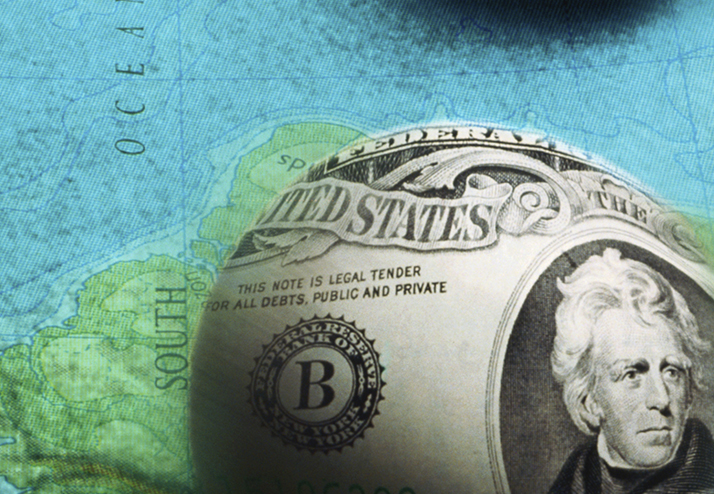My EA Journey
From Expat to Entrepreneur to EA
 I did not know it at the time, but my enrolled agent (EA) journey began in 2002 when my wife, Carrie, and I moved from the United States to Barcelona to pursue our Master of Business Administration (MBA) degrees.
I did not know it at the time, but my enrolled agent (EA) journey began in 2002 when my wife, Carrie, and I moved from the United States to Barcelona to pursue our Master of Business Administration (MBA) degrees.
When we graduated in 2004, we decided to stay in Europe and take finance jobs in London.
A few years later, just before the start of the global financial crisis, we were on vacation in Dubrovnik, Croatia, when we started discussing our future. As we sat on the beach, we talked about what came next. The challenge of starting a family while both of us were working 60+ hours per week led to a conversation about starting our own business to gain more flexibility and freedom.
We rattled off several business ideas that day, but the discussion did not stop there. Ultimately, we wrote out 100 business ideas, exhausting every idea we had so that we could choose the best one.
Of course, hindsight makes it easy to choose the winning strategy since we have now celebrated more than 10 years in business at Greenback Expat Tax Services.i However, even at the time, we knew there was a need for better expatriate (expat) tax preparation.
Taxes were one of the problems we had had while living in London. The United Kingdom system was pretty simple, but filing in the United States was more complicated. We had discovered parts of the tax code that we had never heard about while living in the United States—like Foreign Bank Account Report (FBAR)ii and the foreign earned income exclusion (FEIE).iii
After choosing our idea, we set to work on a business strategy. As the financial crisis continued throughout 2008 and 2009, there was little for me to do at my day job in the financial industry. So I filled my time working on a business plan for Greenback.
When we launched the company, we hired one accountant to handle the tax preparation while Carrie and I handled the marketing, operations, and everything else.
As we grew and hired more accountants, both EAs and certified public accountants (CPAs) played a role in our expansion. We quickly realized that EAs offered specialized expertise in taxation and held federal authorization, whereas CPAs held state-based licensing. Today, some of the highest performers on our team are EAs.
After a couple of years, the business started to take off. We decided that if we were going to run a tax business, either Carrie or I should get licensed. Since I already had a background in financial planning and an understanding
of personal taxation, we decided that I should become an EA. So I found an online program, started studying, and passed the first exam while living in London.
At that time, the business was growing rapidly—and so was our family. We had also begun traveling more frequently after leaving our corporate jobs. It became difficult to fit in studying for the second EA exam between diaper
changes, conference calls, and moving to Brazil.
When it came time for the exam, I realized I had not studied at all! Luckily, it only took a second try to get the passing grade I needed to move on to the final exam. I passed the third exam during a trip back home to New York,
and officially joined the ranks of enrolled agents.
Now that my wife and I run two tax practices—Greenback Expat Tax Services and GBS Tax & Bookkeepingiv—I make sure to maintain my credentials and continue my tax education each year.
Following the COVID-19 pandemic, we anticipate that even more Americans will need expatriate tax advice. When pandemic lockdowns sent everyone home and remote work became the norm, many seized the opportunity to
move to a more attractive location. Now, more Americans than ever are thinking about moving outside the United States, taking their careers on the road, or working for non-United States companies. When they do, the vast
majority will need help understanding the United States tax implications and staying compliant.
While the number of digital nomads is expected to increase by up to 10 times in the next few years, it is doubtful that the United States government will change the tax code to alleviate filing requirements, so EAs with an understanding of expatriate taxation are likely to be in high demand.
In addition to growth potential, expatriate taxation offers a steadier work period than traditional tax preparation. While the domestic tax season ends in April, the expat tax season includes deadlines in April, June, and October.
As experience has taught me, being an EA who specializes in expat taxation is a rewarding career that offers stability, growth opportunities, and the chance to work with a diverse group of clients from all over the world on a daily basis.
i https://www.greenbacktaxservices.com/?utm_campaign=NAEA&utm_source=Expat_Partner&utm_medium=article&utm_content=my_EA_journey
ii https://www.greenbacktaxservices.com/blog/fbaroverview-penalties-options/?utm_campaign=NAEA&utm_source=Expat_Partner&utm_medium=article&utm_content=my_EA_journey
iii https://www.greenbacktaxservices.com/blog/tipsupdates-foreign-earned-income-exclusion/?utm_campaign=NAEA&utm_source=Expat_Partner&utm_medium=article&utm_content=my_EA_journey
iv https://gbstax.com



